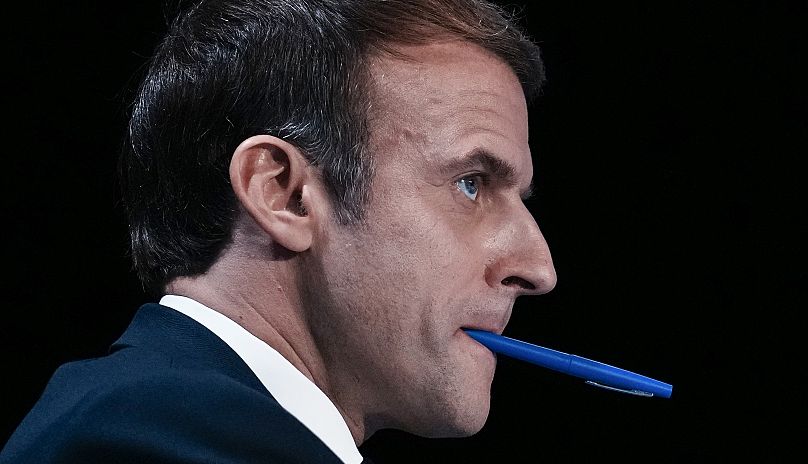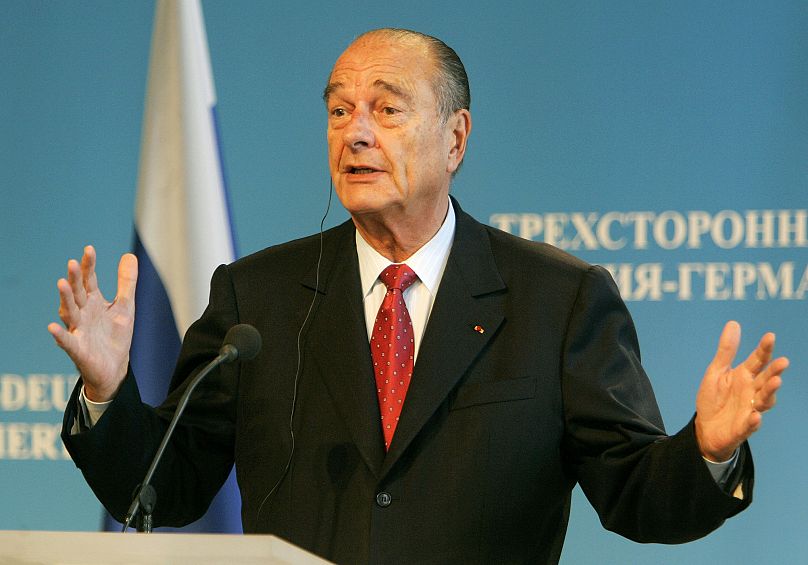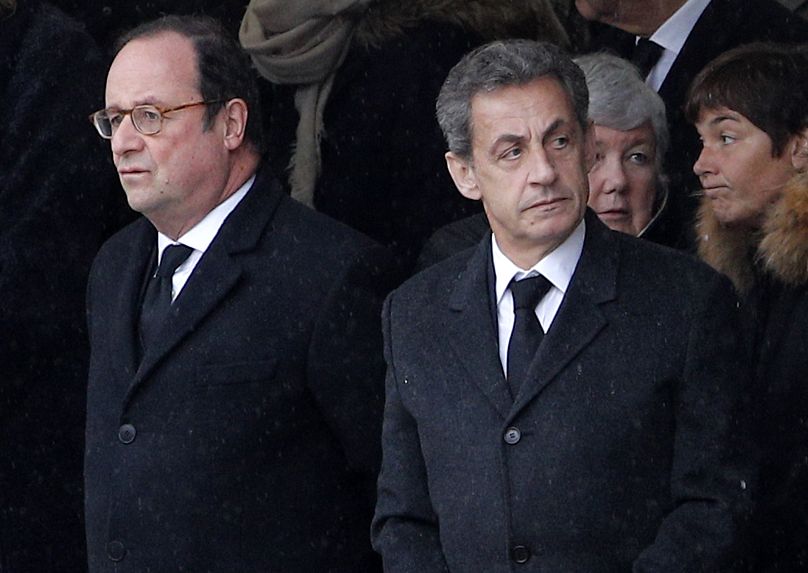Here's our explainer on France's presidential election.
When is the French election?
There are two elections in France this year.
The first one, held over two Sundays in April, is to choose the country's president for the next five years.
In voting on 10 April, the list of presidential hopefuls was whittled down to just two: incumbent Emmanuel Macron and far-right candidate Marine Le Pen.
They will now go head-to-head in a run-off vote on 24 April.
Then, in June, there will be an election to choose the make-up of France's next parliament. Whoever is elected as the country's new president will be hoping to get a majority of députés or MPs in the National Assembly so they can push through their electoral promises.
What were the results of the first round of voting?
Macron, who is hoping for a second five-year term as France's president, got the biggest share of the votes in the first round with 27.85%.
Next was Le Pen, who narrowly beat far-left lawmaker Jean-Luc Mélenchon.
One of the key takeaways from the vote was the collapse in support for two of France's political heavyweights: the Socialists and the Republicans.
Socialist Anne Hidalgo, mayor of Paris, got just 1.75% of the votes. A decade ago, Francois Hollande, who would go on to beat Nicolas Sarkozy in the run-off, came top in the first round of voting, with 28.63%.
The Republicans' Valerie Pécresse won 4.78% of votes on 10 April. In 2012, Sarkozy, of the Union for a Popular Movement, the party's predecessor, got 27.18%.
Macron or Le Pen? Who will win the run-off vote?
It's a case of déjà vu for French voters, who had Macron and Le Pen to choose from in the second round run-off five years ago.
Then, Macron triumphed with 66.10% to Le Pen's 33.90%.
The latest opinion polling suggests it will be closer this time, with Macron predicted to net 57.5% of the votes and Le Pen 42.5%.
How do French elections work?
Each potential candidate in the election had to get 500 signatures from mayors or local politicians to support their bid for France's top job.
France's constitutional council published a final list of candidates on 7 March.
The official campaign then began on 28 March, with French media having to adhere to rules about giving equal airtime to each candidate.
The two candidates with the most votes -- Macron and Le Pen -- in the first round on 10 April will go head-to-head in a second round on 24 April.
If a candidate had got more than 50% of the vote share in the first round, they would have been elected. As it was, Macron got the highest proportion of votes with 27.85%, so a second round is needed.
French voters will once again take to the polls in June to vote for the next National Assembly, the country's lower house of parliament.
Voters elect a member of parliament for each of the country's 577 constituencies.
The députés, or MPs, are also elected by majority vote in a two-round election. In the first round, a candidate can only win if they obtain the absolute majority of votes cast as well as a number of votes equal to a quarter of registered voters.
Candidates must obtain 12.5% of the number of registered voters to advance to the second round. If only one candidate obtains this, the candidate with the greatest number of votes after that candidate can also advance to the second round. If no candidate fulfils this condition, then the top two candidates can go to the second round.
Who can vote in French elections?
French citizens who have reached the age of 18 by the day of the election can vote.
There are 48.7 million eligible voters.
Prisoners have been allowed to vote in past elections -- providing their convictions do not specifically deny them of their civil rights -- by getting clearance to vote in person at the ballot box or by getting someone to vote on their behalf.
But due to the exhaustive paperwork that this required, only 2% of the incarcerated population voted in the 2017 presidential election.
This year will be the first presidential election in which prisoners can vote by post.
Prisoners were able to vote by post in the 2019 European elections and the change saw an uptick in the numbers taking part.
How powerful is France's president?
“We have a president in France who presides over the Republic, who controls the government, who controls parliament, who controls the Constitutional Court. It makes a super president," said Christophe Chabrot, a senior lecturer in public law at the Lumiere University Lyon 2.
This is in part due to the election by universal suffrage and the president's ability to appoint a prime minister to lead the government.
The timing of the two elections also reinforces the French president's power with the parliamentary election coming about a month later which assures that whoever wins the presidency will win a parliamentary majority.
“You don't change your political opinion in a month. So the election of the legislature will often give the same majority as that of the president,” Chabrot said.
What are some of the key issues at the election?
Inflation and the cost of living
Recent polls have shown that purchasing power, the ability to buy goods, remains a top concern for French voters, especially amid record-high inflation in Europe.
Inflation was up 7.4% in the eurozone this year, driven up by the war in Ukraine and sanctions on Russia.
Environment
The environment remains a key concern for French people, with recent polls suggesting it was the third-largest issue for voters.
But it didn't translate into large support for Green Party (EELV) candidate Yannick Jadot, who received just 4.63% of the vote in the first round.
Now, both Macron and Le Pen have been attempting to woo voters concerned about the environment. But environmental activists have deemed that their programmes are insufficient.
COVID-19 pandemic
The past two years of politics have been consumed by the COVID-19 pandemic, including restrictions on daily life imposed by the government.
Presidential candidates criticised Macron's handling of the crisis including the introduction of a vaccine pass in January that required vaccination or recovery from COVID-19 in order to access restaurants and other areas of public life.
Ahead of the election, the French government suspended the measure as COVID-19 cases decrease after an Omicron peak in February.
Immigration
Immigration is a controversial topic in France and has once again been a big topic of the election debate, particularly among right-leaning candidates.
Le Pen has called for the cutting of social allocations to foreigners and reserving these benefits for French citizens.
Presidents in France's fifth republic
Charles de Gaulle (1959-1969)
Elected by an electoral college for a first seven-year term then re-elected by direct universal suffrage in 1965. He resigned after losing a referendum in 1969.
Georges Pompidou (1969-1974)
Died two years before the end of his mandate
Valéry Giscard d'Estaing (1974-1981)
Completed a seven-year term
François Mitterrand (1981-1995)
Served two, seven-year terms
Jacques Chirac (1995-2007)
Completed a seven-year and a five-year term















